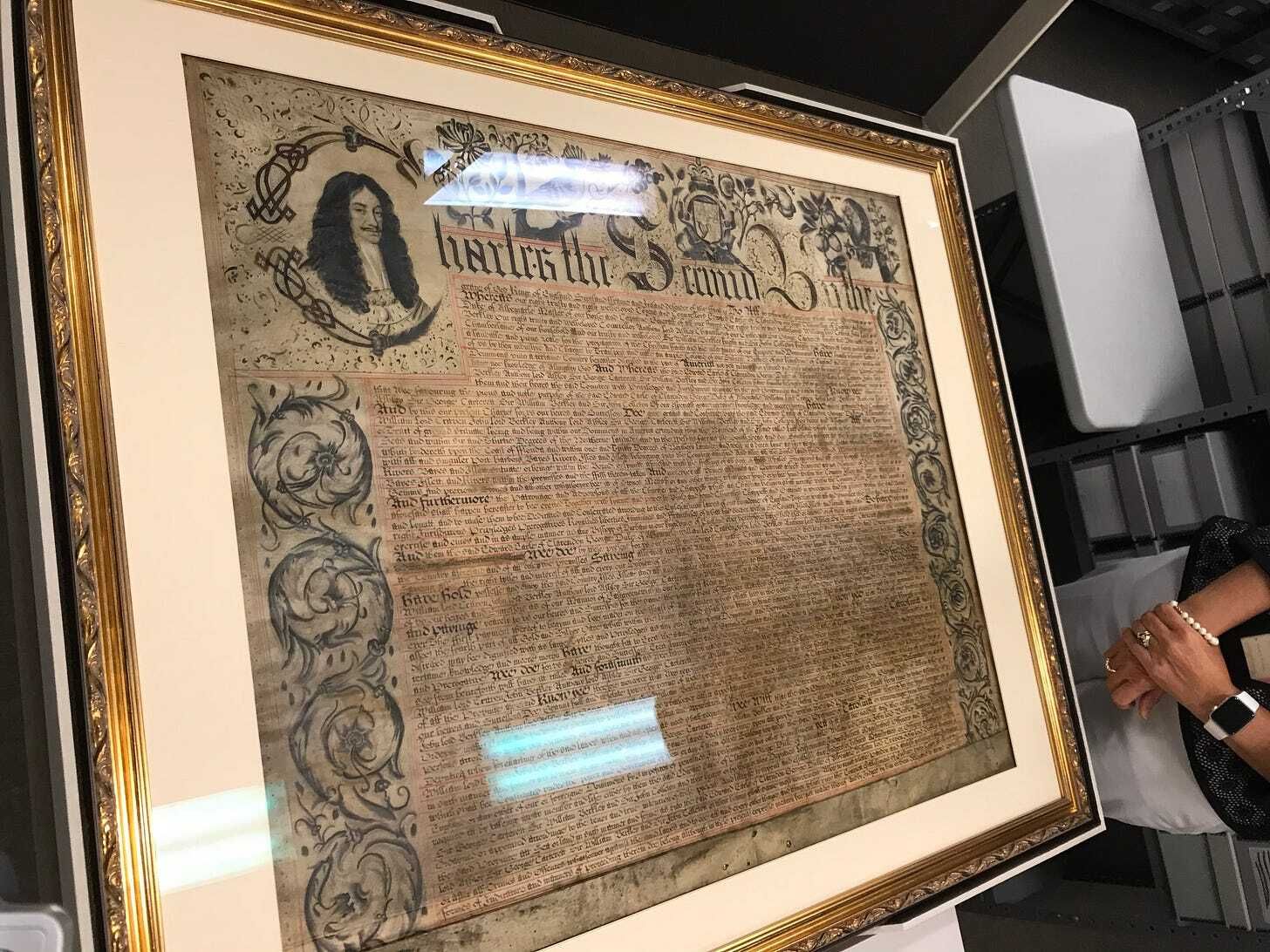
There’s a lot to unpack from the November election. But! There was one thing that passed overwhelmingly: A new amendment to the North Carolina constitution. About 78% of voters said yes to it. And what does that amendment do, exactly?
Not a damn thing!
It is already illegal for non-citizens to vote in state and federal elections. And yet voters just changed the part of the constitution that says who can register and vote:
The change in wording from "every person born ... and every person who has been naturalized" to "only a citizen" would make no actual change to who can register and vote.
North Carolina was one of eight states, all with GOP-led legislatures, where voters approved an amendment like this (and to be fair, North Carolina’s Democratic lawmakers overwhelmingly voted to put this on the ballot, maybe because they didn’t want this vote to end up in campaign ads against them). The proponents said the amendment was needed to “clarify” existing state law. Those against it said it was just an effort to get people riled up over immigration. In any event, illegal voting is rare, so here we have a solution to a problem that’s not actually a problem. Again.
I digress. Back in the early days of the Rabbit Hole, I wrote about our state constitution, which contains multitudes. Some parts of it inadvertently prevent things that people hate, like speed traps. Other parts are dead weight, but are still there. One part prevents guys who enjoy firing machine guns into swamps from becoming sheriffs. Sorta.
Anyhow, here for your reading pleasure (because nobody really read it the first time) is a ridiculous civics lesson about swamps, Asheville atheists, and the greatest state in the country: Long Carolina.
I know we’re not even rolling yet, but since we’re talking about lawmakin’, please allow me to relate my favorite gavel story of all time. In November 2019, the outgoing mayor of Summerfield, North Carolina, who presided over two years of chaotic small town government whimsy, gaveled her final meeting into session. At one point, a council member tried to tell her that she was out of order, prompting the mayor, Gail Dunham, to bang her gavel loudly while saying “We’re not listening to your personal attacks, John.” Then, according to the Northwest Observer, this happened:
Sitting next to Dunham, Laughlin gabbed the gavel and passed it to Mayor Pro Tem Dena Barnes, who placed it between herself and Town Clerk Lance Heater several feet away from the mayor.
“Excuse me,” council member Teresa Pegram shouted. “Put that back. That is not yours. It belongs to the mayor.”
Pegram and other council members started laughing when Dunham retrieved the second gavel from her bag and gave it a whack.
A BACKUP GAVEL.
The same article went on to say that the council would mark their upcoming peaceful transfer of power with cake.
Anyway, we’re talkin’ about gavel hijinks because with the a year comes a fresh session of the state legislature. The new class of North Carolina state lawmakers was sworn in yesterday [NOTE: Yesterday being Jan. 13, 2021] in Raleigh with little incident. I’m guessing it’s because we invested in quality gavels, unlike West Virginia:
There is, as there always is, a lot for them to work on. But one of the things that our lawmakers should consider, according to Western Carolina University political science professor Chris Cooper, is an amendment to the North Carolina constitution. From his editorial in the Asheville Citizen-Times:
Some may be surprised that a literacy test still exists in the North Carolina Constitution, but there it is, in clear language in Article VI, Section 4, “Every person presenting himself for registration shall be able to read and write any section of the Constitution in the English language.” Because it is enshrined as such, the threshold for change is higher for than it would be for most other issues. At least 60 percent of the member of both houses of the General Assembly must vote to place the question on the ballot and the majority of voters must then vote to eliminate the language.
The literacy test for voting isn’t enforced anymore, but it’s still there in the state constitution, a living vestige of a Jim Crow past. There have been attempts to pull it out before. In 1969, the General Assembly passed a measure to put it on the ballot before voters, but it was the only one of six constitutional amendments that was voted down. The most recent attempt, in 2019, had bipartisan support but didn’t make it out of the state senate. [NOTE: Another attempt in 2023 and 2024 also failed.]
It’s easy to think that constitutions are these really old documents, frozen in time, written on parchment with a quill pen, able to be easily stolen by Nicolas Cage. North Carolina does have a number of those sorts of documents inside a hidden vault that’s deep below the state archives building in Raleigh. Among them are legit treasures, including the stolen-and-returned state copy of the Bill of Rights, and the Carolina Charter of 1663, which established the colony that became this state.

There’s no one, large document that represents the North Carolina constitution. There have actually been three of them, enacted in 1776, 1868, and 1971. The first version made the governor so weak that, among other things, he could only serve a one-year term. It also made property ownership a requirement if you wanted to vote for a state senator. The next constitution, in 1868, came with a lot of progressive changes that North Carolina had to agree to in order to rejoin the union after the Civil War. Hence, it was hated by white supremacists. Hence, when those white supremacists took power several years later, they started adding to it, and over time, the General Assembly and voters went on to make 70 amendments. Among them: A poll tax and literacy test for voting that was added in 1900. By the middle of the 20th century, the document had become antiquated and unwieldy, so the whole thing was rewritten. The 1971 constitution, the one we use today, cleaned up and cleared out a lot of things. But it still left in a lot of stuff that should have been left out, and vice versa. Here, then, are three head-scratching parts of the current state constitution:
Article VI, Sec. 8. Disqualifications for office.
The following persons shall be disqualified for office: First, any person who shall deny the being of Almighty God.
Jesus is cool and all, but your elementary school civics class probably taught you that this wasn’t gonna fly. And yet, there it still is, staring back at you from the foundation OF ALL OF NORTH CAROLINA’S STATE LAWS.
Now before you think, ah, well, who cares, I’d like to remind you that this particular provision of the state constitution was used to challenge an election in 2009. A man named Cecil Bothwell, who may be the Ashevilleiest Asheville Guy ever, won his race for city council. But someone in town challenged that win, saying since Bothwell was an atheist, he couldn’t take office. It didn’t work. Federal courts have said it’s illegal to bar someone from public office on the basis of religion. Hence, if you believe in the Flying Spaghetti Monster, no one’s stopping you from running for soil and water conservation district supervisor.
The Almighty God clause is one of several parts of the constitution that have been superseded by federal laws or courts. The Voting Rights Act made the aforementioned literacy test invalid, and the U.S. Supreme Court’s decision in Obergefell v. Hodges in 2015 invalidated the amendment that banned gay marriage. Still, though, all three of those things remain in the text, as does a section governing “the net proceeds of all sales of the swamp lands belonging to the State.” (More on swamps in a bit.)
Article XIV, Sec. 2. State boundaries.
The limits and boundaries of the State shall be and remain as they now are.

You laugh, but Long Carolina was once a real place (although, it wasn’t named that). Before it gave up that land in 1789, North Carolina basically just kept going, westward, to the Mississippi River. In 1796, the land that North Carolina gave up became the state of Tennessee. You’re welcome.
(Before you start getting up in my mentions, yes, there was a sort-of state, Franklin, that popped up and went away around that same time.)

A few years ago, I really geeked out on the North Carolina border for an entire section in Our State magazine, and learned a lot of things. Among them: The state constitution prevents North Carolina from rolling out with the National Guard and annexing, ew, Myrtle Beach. (It also prevents the state from seceding from the union which, uh, is a thing that’s happened once before). Since the borders are not allowed to change, the surveyors who, for years, went out to ostensibly re-draw the state line between North and South Carolina couldn’t actually say things like “the border moved,” or “we’re redrawing it,” or whatnot. Instead, they said they’re “re-establishing it.” Hence, when a gas station in South Carolina magically became part of Gaston County, North Carolina a few years back, it didn’t “switch” states so much as it was discovered to be in North Carolina.
In any event, give up on your dream of making Dollywood into a North Carolina attraction. It’s not gonna happen.
Article VII, Sec. 2. Sheriffs.
No person is eligible to serve as Sheriff if that person has been convicted of a felony against this State, the United States, or another state, whether or not that person has been restored to the rights of citizenship in the manner prescribed by law.
Seems like this should be a no-brainer, but before a constitutional amendment passed in 2010, you could be felon and still hold the highest law-enforcement job in your county. The change came after six (!) felons ran for sheriff in spring 2010, most notably a guy named Gerald Hege.
Before we go on, let’s talk about Gerald Hege! He’s… a lot. I mean, get a load of these two paragraphs from his Wikipedia page:
Hege was elected sheriff in 1994 by a margin of 261 votes. One of his better-known campaign slogans was "When I am elected Sheriff, I will wear a uniform every day and there will be no deals for anybody." After his election, all Davidson County Sheriff's cars were fitted with a front license plate proclaiming "NO DEALS" in large block letters.
His personal patrol vehicle was a 1995 Chevrolet Impala with a Chevrolet Corvette engine and nitrous oxide tanks. His department lost its insurance coverage when he boasted that he had driven the vehicle at speeds of up to 140 mph. The car was referred to as "The Spider Car" because of a custom paint job featuring a Black Widow Spider and the letters "DDT." The windows of this and all other patrol cars of the force were tinted dark black.

He sold toy Spider Cars. He used sandbags to make his office look like a bunker. He painted the walls of the Davidson County Jail pink, with crying teddy bears. He allowed a reality TV show to film inside said jail.
Here is a link to a picture of Gerald Hege firing a machine gun into a swamp. AIN’T NO JUSTICE LIKE VIGILANTE SWAMP JUSTICE.
In the end, Hege’s larger-than-life persona collapsed. In 2004, despite all of those NO DEALS license plates, he made a deal with prosecutors and pleaded guilty to obstruction of justice. As part of the plea, he was removed from office. But just six years later, he got back in the saddle. His run for office in 2010, along with the campaigns of the five other would-be felon sheriffs, was unsuccessful. But the episode spurred on legislators to get an amendment on the ballot, which passed with 85 percent of the vote. It seemed like the loophole was closed: Felons could not become sheriffs.
And yet, after all of that, Gerald Hege found a way to run for sheriff again. In 2018, he cited a new law that allowed his felony conviction to be expunged, which he argued made him eligible to become sheriff once more. His interpretation was challenged by a woman who argued that the amendment kept felons from becoming sheriff regardless of whether that person’s “rights to citizenship” had been restored. But the Davidson County Board of Elections had a hard time figuring out how to square the new law with the old amendment, and ended up ruling that Hege was eligible to run.
This time, though, he lost. In 2019, state lawmakers tried to pass a law that would have kept Hege and other sheriffs with expunged felonies from taking their old offices back, but it ultimately died in committee.
“This place used to be known for barbecue,” Hege said of Davidson County in 2001. “Now it’s known for me.” But in the end, the publicity around preventing felon sheriffs may have been greater than the publicity generated by Hege himself. The swamp finally has its vengeance.
